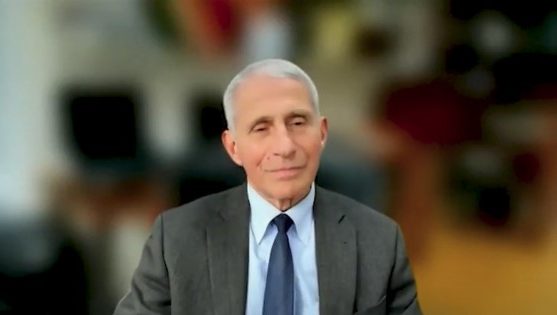Life After Government: A Fireside Chat with Dr. Fauci

March 24, 2023
There is no face of the pandemic more recognizable than that of Dr. Anthony Fauci. The former Chief Medical Advisor and Director of the National Institute of Health (NIH) is best known for his messages of resounding reassurance during the peak of pandemic uncertainty. In December 2022, the 82-year-old officially stepped down from his government duties, marking the beginning of an end of a remarkable legacy in public health administration.
In a webinar hosted by The Boston Globe as part of Health and Biotech Week 2023, The Quill was invited to view and participate in the fireside chat. Fauci took center stage as he answered a variety of questions pertaining to COVID-19 and the pandemic. He joined the meeting in a gray suit and a navy blue tie, giving a little wave to the camera before moderator Anna Kuchment noted that he was muted—as is typical of the start of such meetings.
Kuchment began the questioning by bringing up the recent Department of Energy’s findings that contest the origins of the COVID-19 virus. Once thought to have originated from a wet market, there have been suspicions that COVID-19 may have escaped from a lab instead. Fauci was quick to question these claims, neither supporting nor denying their credibility.
“We must all keep an open mind to all possibilities that need to be entertained,” Fauci responded. “It would be nice to see that data to make an evaluation.”
The questions then shifted from the origins of COVID-19 to any recommended preventive measures we can use to contain the virus. Fauci was quick to reiterate the policies he explained over his tenure as Chief Medical Advisor, including vaccination, preventative measures such as frequent mask-wearing, and frequent tests when presenting any symptoms.
“Only 69% of [the U.S.] population is vaccinated,” Fauci reminded. “Compare us to other countries—even countries in the developing world—our vaccination level isn’t as good.”
In addition to preventative measures, mask-wearing was also brought up during the questionnaire. Fauci noted that he had been double-boosted, infected (which produces natural immunity), and boosted again.
He chuckled, “I have a lot of immune response in me…but I’m not reckless.”
His ultimate decision, he noted, depends on a multitude of factors, including the crowd size, the local transmission level (per the CDC’s regularly updated data), and his personal risk tolerance.
“When I’m in a situation like a crowded indoor situation, I may or may not wear a mask,” Fauci concluded.
The interview then considered more questions about his personal life, notably about if there are still any death threats he has received over the decisions he made during the pandemic.
“Every time someone makes a conspiratorial comment that I’ve destroyed the country’s economy or I created the virus or something like that, then the threats elevate,” Fauci commented. “They really haven’t diminished since I stepped down.”
The interview also discussed what Fauci considers his greatest accomplishment. From leading the nation through COVID-19 to working under numerous presidents, he aptly responded with his contributions to fighting against AIDS.
“I’m most proud of developing the AIDS program…that transformed the lives of patients with HIV,” he noted, citing that the program has “saved millions of lives throughout, without a doubt.”
With the fireside chat coming to a close, the webinar has given us new information about Fauci’s perspective on managing the entire COVID-19 pandemic. It shows that even though he has stepped down from a public role in government, Fauci still contributes to the safety of Americans by continually instructing people on how to successfully manage the pandemic.
Photo courtesy of The Boston Globe
